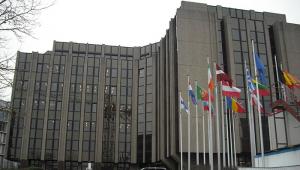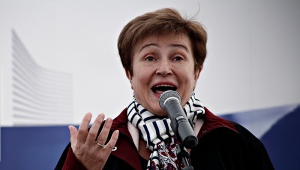The IMF also said German chancellor Angela Merkel should think about introducing pension reforms to lengthen working lives, enabling workers to save longer for retirement and lower the risk of old-age poverty.
It added that boosting productivity growth and investment would improve long-term growth potential and reduce Germany’s “persistently large current account surplus”.
The IMF said in its annual policy recommendations, released yesterday: “The new government’s coalition agreement contains several welcome measures, which will continue to address some of these challenges.
“Yet the current favourable economic environment provides an opportunity for the new government to take more forceful policy actions.”
It recommended that Germany use the “ample available space within the fiscal rules” to further increase public investment in infrastructure and education.
Raising public investment would alleviate “bottlenecks at the municipal level”, the IMF said, and suggested the country expand childcare and after-school programmes in the country, to allow women to pursue full-time employment.
The Fund also said Germany should invest more in digital infrastructure. It said: "Completing Germany’s digital transformation will require additional investment and the government should ensure that incentives, regulations, and funding availability are appropriately supportive."
French president Emmanuel Macron gave a speech in Germany last week, saying the country should wean itself off the “fetish” of fiscal conservatism, Reuters has reported.
IMF chief Christine Lagarde has warned that countries with large and growing current account surpluses, such as Germany, could be partly responsible for the rise of protectionism. US president Donald Trump’s follows an economic policy of protectionism.
The European Commission has also previously advised Germany to increase public investment.
Separately, data from the German statistics office out today has revealed the country’s economy policy grew at the slowest pace in more than a year at the start of 2018.
The growth was weaker than forecast and is most likely a result of a eurozone slowdown caused by trade, but the European Central Bank has said this may be temporary.
The German GDP rose 0.3% in the first quarter of the year, compared with the median estimate of 0.4%.
The European country’s statistics office said the growth was bolstered by domestic demand, but that trade lost momentum.
Experts at Bloomberg Economics Jamie Murray and David Powell said: “Whether this marks the end of a robust expansion or is just a bump in the road is crucial to understand as the ECB mulls the end of asset purchases.
“We think a modest amount of momentum has been lost, but that [the second quarter] will see a rebound.”













